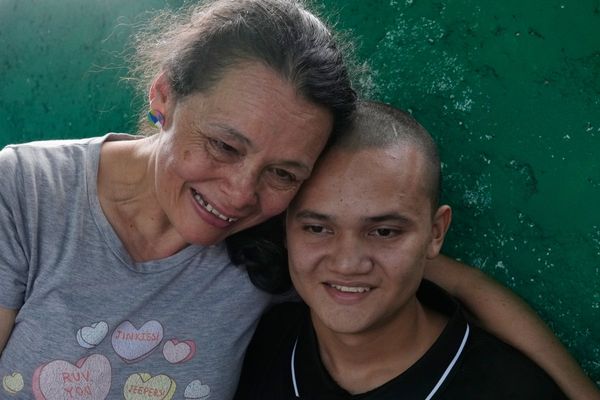
England rugby are hoping to win a first Women’s Rugby World Cup crown in 11 years when they take on Canada at Allianz Stadium in Twickenham this weekend — but glory so nearly arrived three years ago in Auckland in the last tournament decider.
The Red Roses entered the World Cup final at Eden Park on a winning streak of 30 matches; after 80 agonising, intense minutes, the Black Ferns were champions again in front of a home New Zealand crowd.
As they prepare to attempt to right the wrongs of 2022 against different opposition on Saturday, The Independent spoke to some of those involved to chronicle what went wrong for England in Auckland – and the lessons they can learn.
A chaotic and challenging build-up
While England have 32 fit and available players for this final, the same was not true three years ago. The injury problems really began before the semi-final, with Hannah Botterman lost to a knee issue, before first-choice full-back Helena Rowland suffered a serious ankle injury during the second half of a hard-fought win over Canada. With Rowland out, head coach Simon Middleton tinkered with his backline for the tournament decider, bringing in Holly Aitchison to midfield at the expense of Tatyana Heard.
“We’d been so resilient for a couple of years,” Middleton explains. “We’d changed our training programme and been so robust, we were hardly ever picking injuries up. Then we got to the World Cup…”
Most significant, perhaps, was the upheaval at scrum half. Middleton had elected to choose only two specialists in his squad, omitting World Cup winner Natasha ‘Mo’ Hunt in a decision that attracted criticism. Come the day of the final, both Leanne Infante and Lucy Packer were dealing with injuries – when the former had to withdraw on the morning of the match having been named in the starting side, Packer – then untested in that sort of occasion – was called in despite dealing with an ankle ligament issue of her own. Claudia Moloney-MacDonald had forced her way in on the wing during the course of the tournament but now her scrum half skills were required as cover.
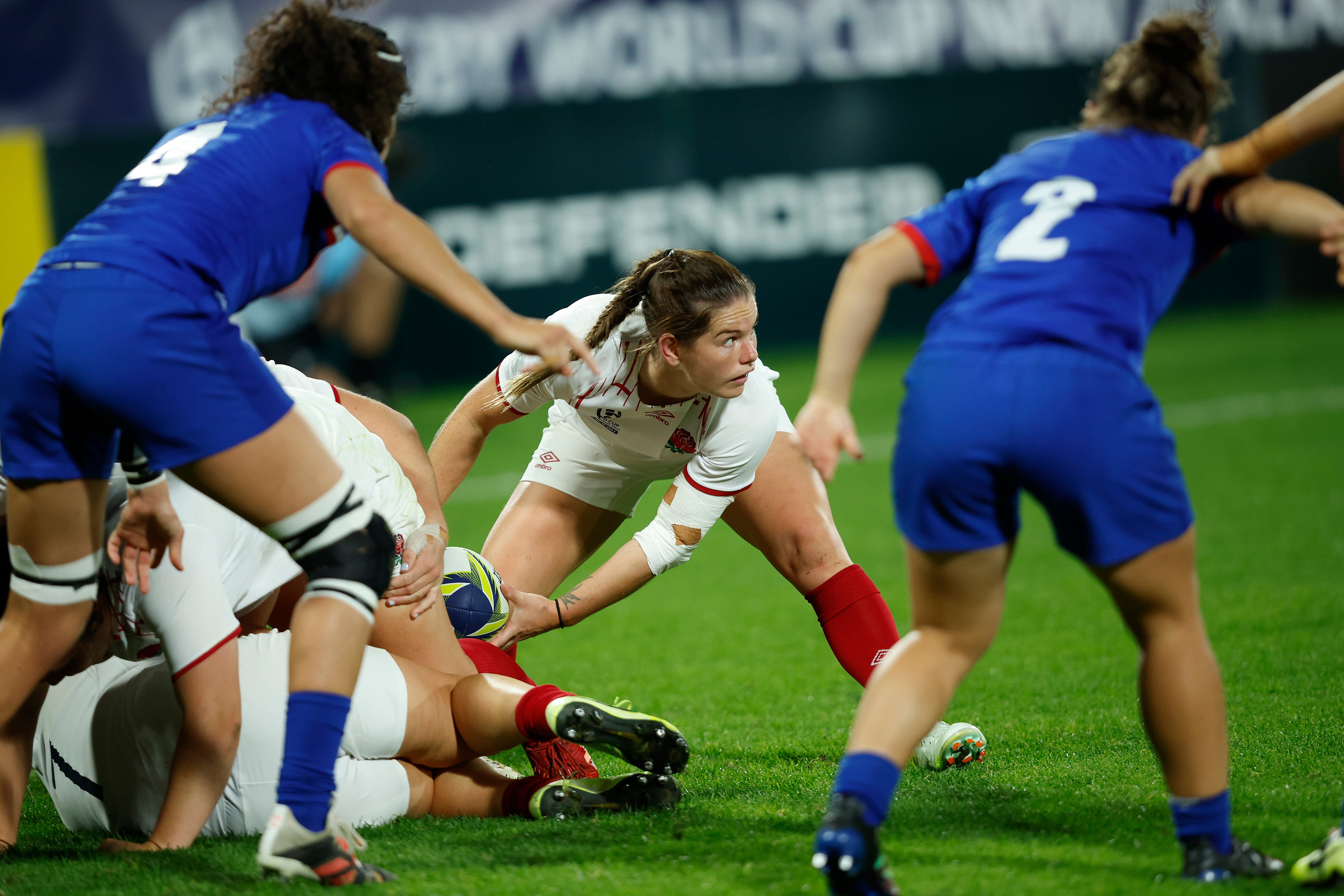
“At one point, we had all three scrum halves injured in one form or another,” Middleton recalls. “Leanne was really struggling for quite a bit of the tournament. In the week building up to the final, she was really struggling and the medical team couldn’t quite put their finger on what it was. She was as confused as the medics.
“On the morning of the final, the first call I got was from the doctor to come down. Leanne’s joints were all swollen up and there was no way she was going to play.”
Mitchell stands by his decision to omit Hunt from the original squad. “We had as much depth as you could possibly hope for at nine. It was difficult because I knew how impactful it would be on her.
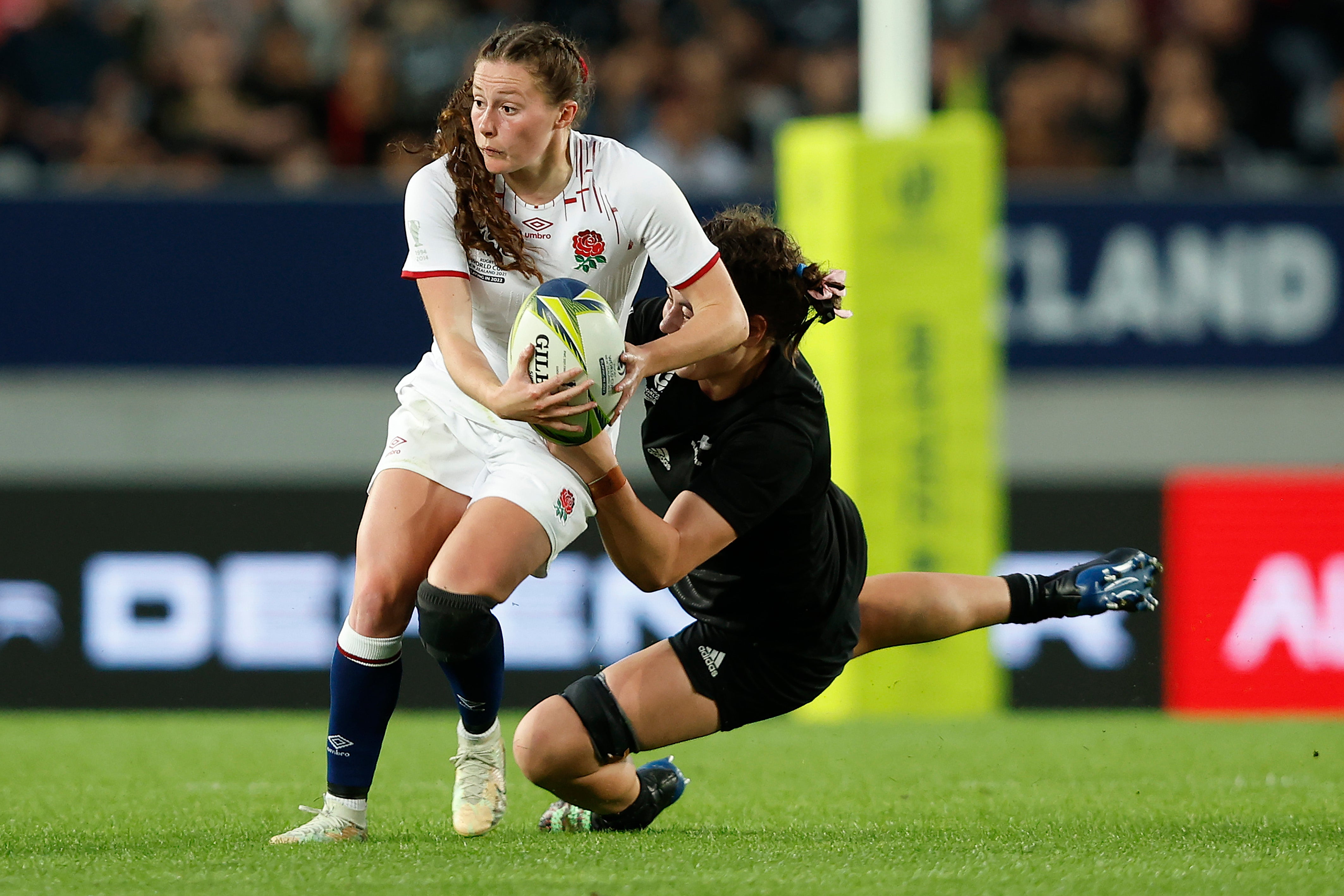
“There was this big thing about it being Lucy Packer or Mo, and it wasn’t that at all. Lucy was the first nine on the plane. Leanne was a warrior and I had a lot of faith in her. There was no way I was going to take three out-and-out nines, and Claudia could play on the wing. It was a difficult decision, but it wasn’t the toughest decision.”
Even once the game had begun, more injury trouble came. While most of the attention was placed on Lydia Thompson’s 18th-minute red card – more on that in a moment – Middleton believes the loss of Zoe Aldcroft on 27 minutes was equally key. “I felt absolutely helpless,” now-captain Aldcroft told The Independent in 2023, having failed a head injury assessment and departed. “I was sat on the sideline begging the doctor to let me back on. It was just heart-breaking. I thought of everything we had been through as a team and a squad, everything we’d worked towards. There was no doubt in our minds that we were going to win that final.”
The World Cup final
The injuries played their part but the moment that really swung the final came after 16 and a half minutes. England had made a brilliant start, surging into a 14-point lead, with the Black Ferns yet to get going. But soon enough, Portia Woodman-Wickliffe rounded Ellie Kildunne, and a covering Lydia Thompson came across and made head-to-head contact with the New Zealand wing – an incident that would end both of their evenings early. As Woodman-Wickliffe departed for medical treatment, referee Hollie Davidson – who will also be in charge this weekend – concluded in consultation with television match official (TMO) Ben Whitehouse that Thompson’s challenge merited a red card.
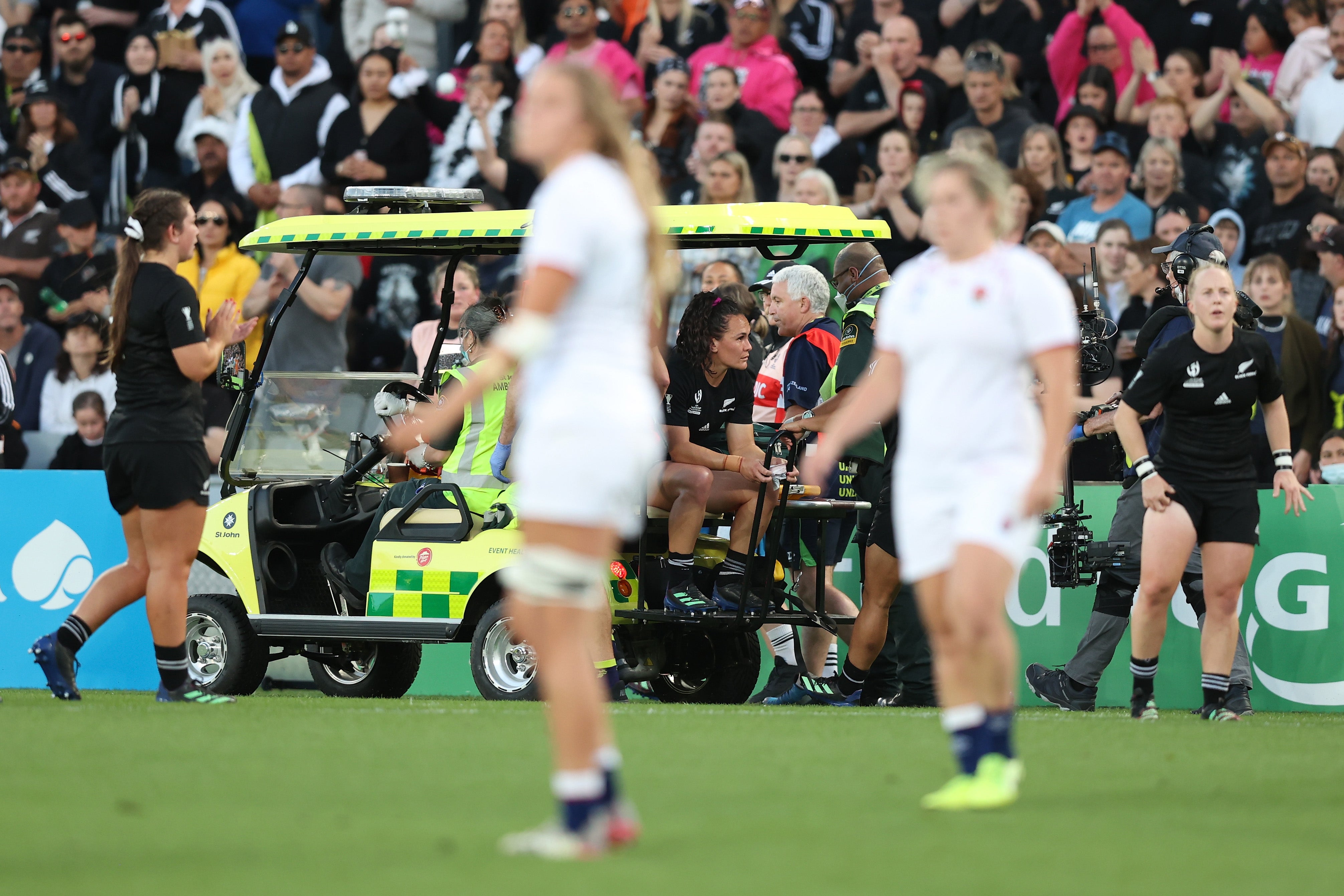
“It was the first time they’d really tested us,” Middleton remembers. “We turned them over, Holly Aitchison kicked it out to the halfway line, and I was thinking, ‘that is a massive moment for us’. But then [forwards coach] Louis Deacon tapped me on the shoulder and said, ‘Lydia is in trouble here’. I’d missed the incident completely.” Thompson is widely regarded as one of the nicest people in rugby; the sending off was a cruel way for her England career to end.
Shorn of a member of their back three, the Red Roses struggled to protect the edges. Having toyed with losing a forward to compensate for their backline disadvantage, but trusted their strength up front to see them home. England – with Moloney-MacDonald needed to replace Packer at scrum half – had no back three cover on the bench, forcing Holly Aitchison to play full-back for the first time in her life and leaving Emily Scarratt exposed in the 13 channel at times or the backfield under resourced. The Black Ferns, of course, did have a world-class wing replacement, and Ayesha Leti-I’Iga scored twice after replacing Woodman-Wickliffe following her failed HIA.
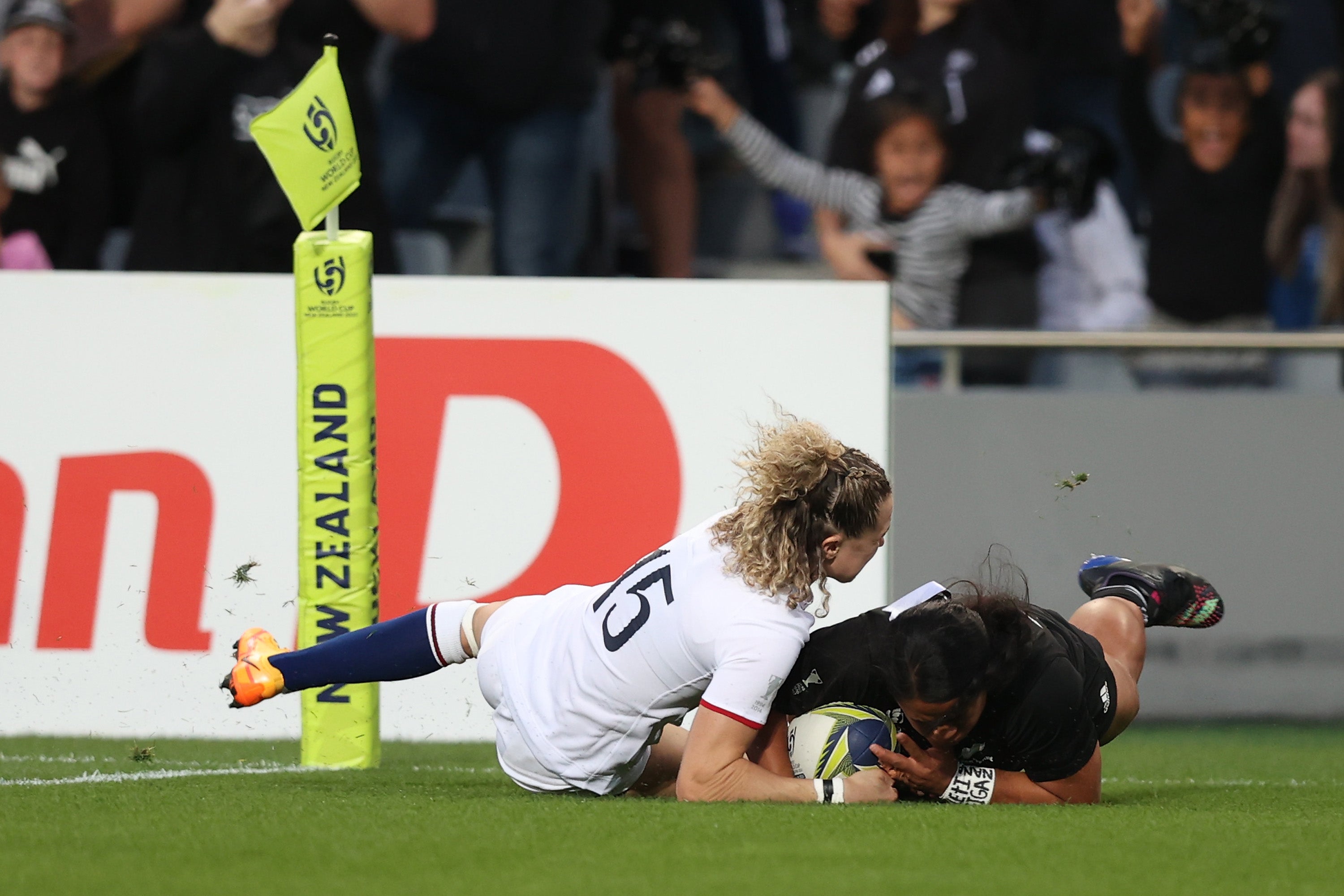
To complicate matters, some of England’s most experienced players were soon off: captain Sarah Hunter was replaced on 41 minutes, Marlie Packer on 50. Yet one cannot really say that New Zealand were comprehensively the better team in the final. Even with a player advantage for 60 minutes and a home capacity crowd roaring them on, the final margin was only three points, and the Red Roses had a shot to win the game.
All tournament, England had relied on the strength of their lineout and driving maul to procure points; indeed, starting hooker Amy Cokayne had already scored a hat-trick in the final with New Zealand unable to halt the rumbling mass. While an 80th-minute penalty earned at the lineout was within Emily Scarratt’s range, the decision was made to kick to the corner and go for the win rather than try to force extra time with three points.
“To get to that last play with it still on the line for us showed great character,” Middleton stresses. “I thought the players were immense on the day. Every time the Black Ferns made a strike, we struck back. When we got to the lineout situation, I thought, ‘this is going to be the day that it works out for us’.”
But the set-piece, so reliable across the tournament, faltered – England tried to go to a banker ball at the front, but Lark Atkin-Davies’s throw to Abbie Ward was disrupted by the hand of Joanah Ngan-Woo. The pair had just connected a minute earlier to set up the maul that earned that penalty; perhaps the second throw was telegraphed with Aldcroft off and the options therefore limited. Regardless, the Black Ferns swept up the loose ball, smuggled it into touch and snapped England’s winning streak.
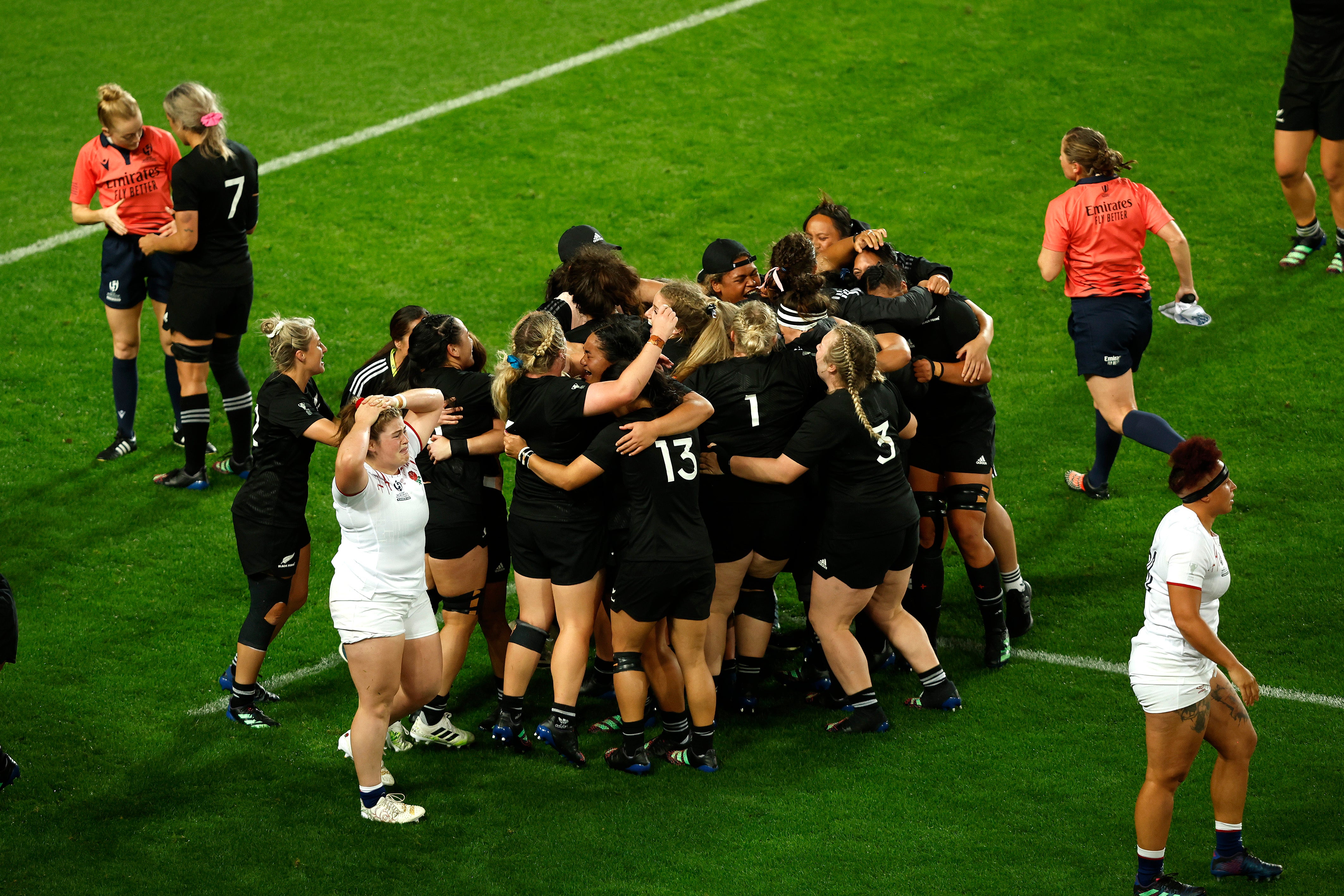
"From a personal perspective, there were massive learnings from it,” Atkin-Davies says. “But I don't think you can dwell on it because you have to be in the moment, you have to play the game in front of you, you can't think about what happened three years ago.”
The lessons that England can learn
The ramifications of the defeat were significant. Hunter played just one more game, on home turf at Newcastle’s Kingston Park, before retiring, while Middleton oversaw another Six Nations success before departing at the end of his contract. In came John Mitchell, tasked with making sure that England are ready to go one better this time around. Dealing with the adversity they may face has been a key work-on for a side that has gone unbeaten between finals. Of course, were a Thompson-like incident to happen this weekend, the damage would not be quite severe with the introduction of a 20-minute red card for tackles of that type.
“We’ve worked a lot about the game being unfair and preparing for the what if moments,” Hunter, now defence coach, says. “That is something the girls have been really good at adapting to. If and when these moments do happen, the girls are prepared so they know the plan they can execute.
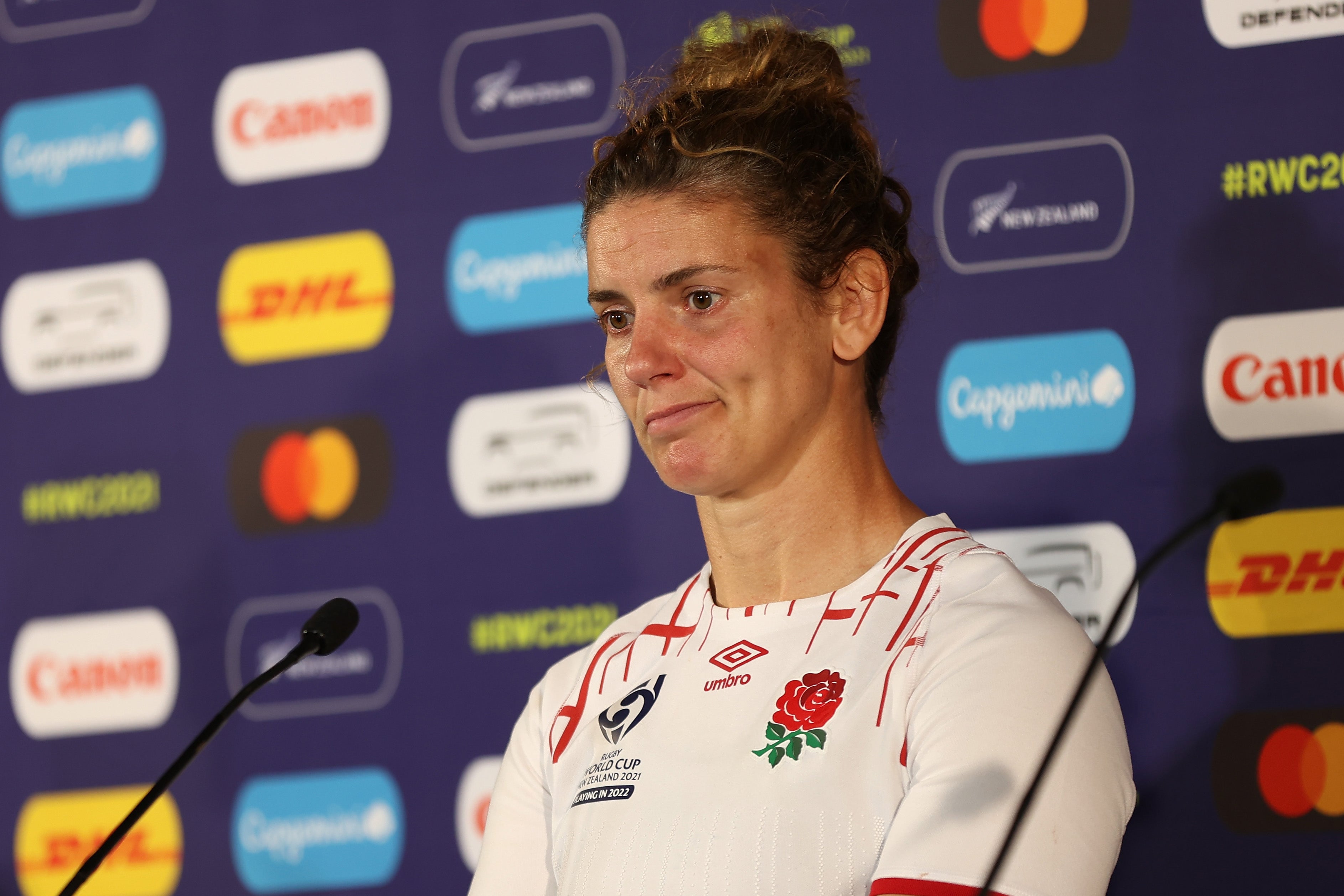
“It falls back on the strength of the group. In adversity, the strength of the group can help you overcome. You can have concise plans from a tactical point of view, but in big games in big moments, that connectivity with your mate that they are with you and willing to go to war with you. It’s something that we’ve really grown and developed and shown in bucket loads over the last few years.”
18 of England’s matchday 23 from Eden Park are part of their squad at this tournament, with others like Rowland, Botterman, Jess Breach and Rosie Galligan watching on in Auckland. The squad have sought to consciously avoid dwelling too much on the past – it is a new group, with new coaches, facing new opposition. Clearly, some scars remain; lock Abbie Ward still has a polaroid picture on her wall from the 2017 final defeat alongside a series of images from her career.
But there also those without mental baggage. Meg Jones, who was firmly in the sevens fold at the time of the last tournament, has described missing out as a sort of “superpower”, while for flanker Sadia Kabeya, her only defeat in an England shirt did not deal the damage some might expect.
“For me it was a weird one because I hadn't played much in that World Cup,” she explains, having played the last half-hour in Auckland. “Injury brought me into the semi-final and the final and I was there to put the squad in the best place. The fact I was playing in the final was amazing but it was never in my plans. I just wanted to put my best foot forward.
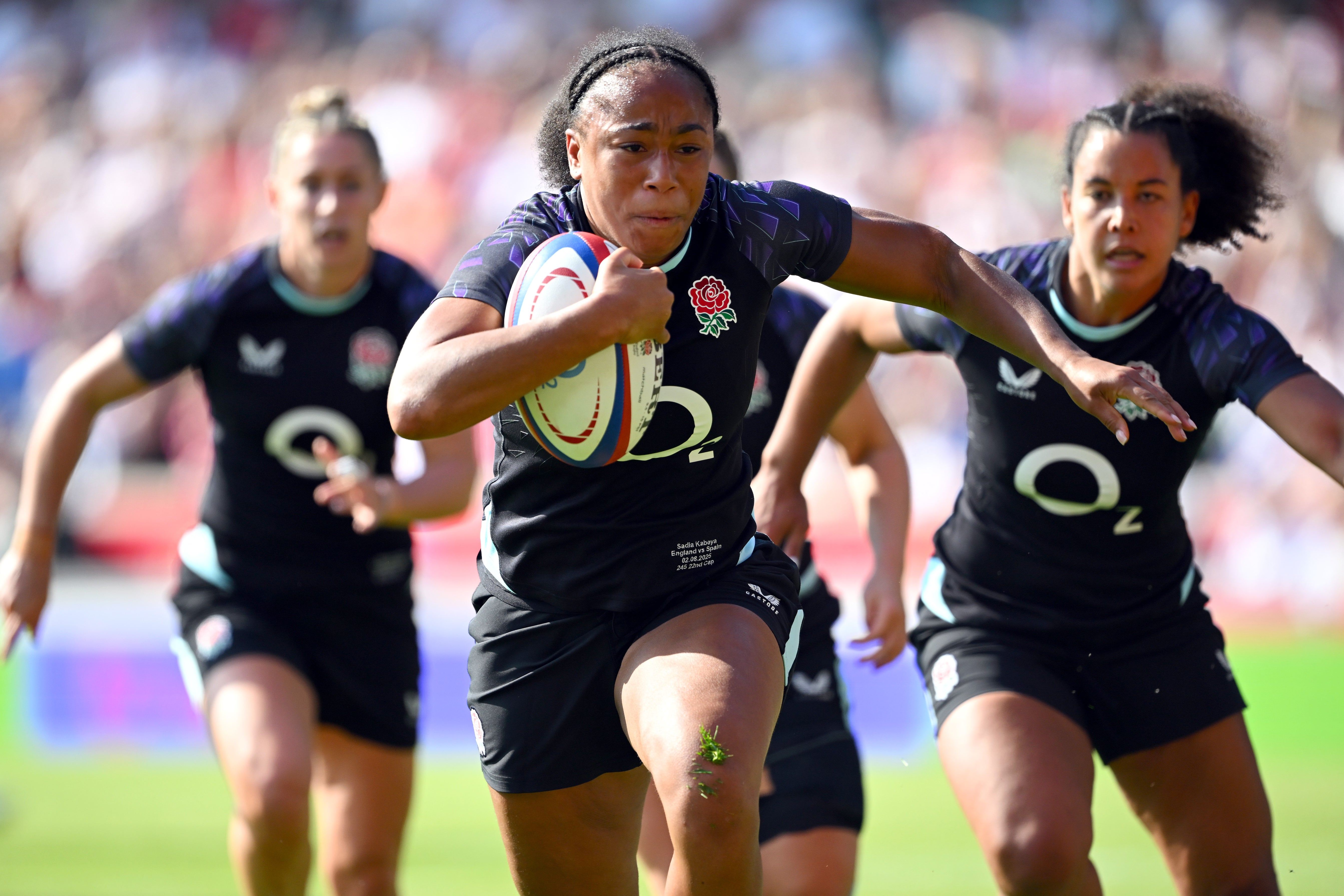
“When we did end up losing in that final, it didn't hit me as much because of being new and not knowing as much about the history I didn't have that weight. I think because I was so young and new into it, it was a loss but not as monumental as it was for the other girls. There are a lot of learnings but for me it's a completely new page.”
Middleton, however, will not be part of this new story. The challenge of being Red Roses head coach is that you are ultimately judged on one game every four years; regardless of the success between World Cups, the Yorkshireman’s failure to win the trophy in two goes as a head coach ultimately defines a large part of his tenure. An assistant to Gary Street in the 2014 win, he will watch on from prime position as a BBC pundit on Saturday and hopes that the side finally triumph.
“The pressure is a little bit different this time,” he concludes. “Going to New Zealand was tough: 52 days in a country that was pretty hostile, coming off the back of Covid, a long way from home. It was a really tough tournament.
“This tournament, they’ve done so much more on their own terms. They seem to be a group that are really very relaxed about the off-field stuff and how they embrace engaging with the stuff outside of rugby. The home World Cup has played to the strengths of a lot of players who seem to be very comfortable in the spotlight.
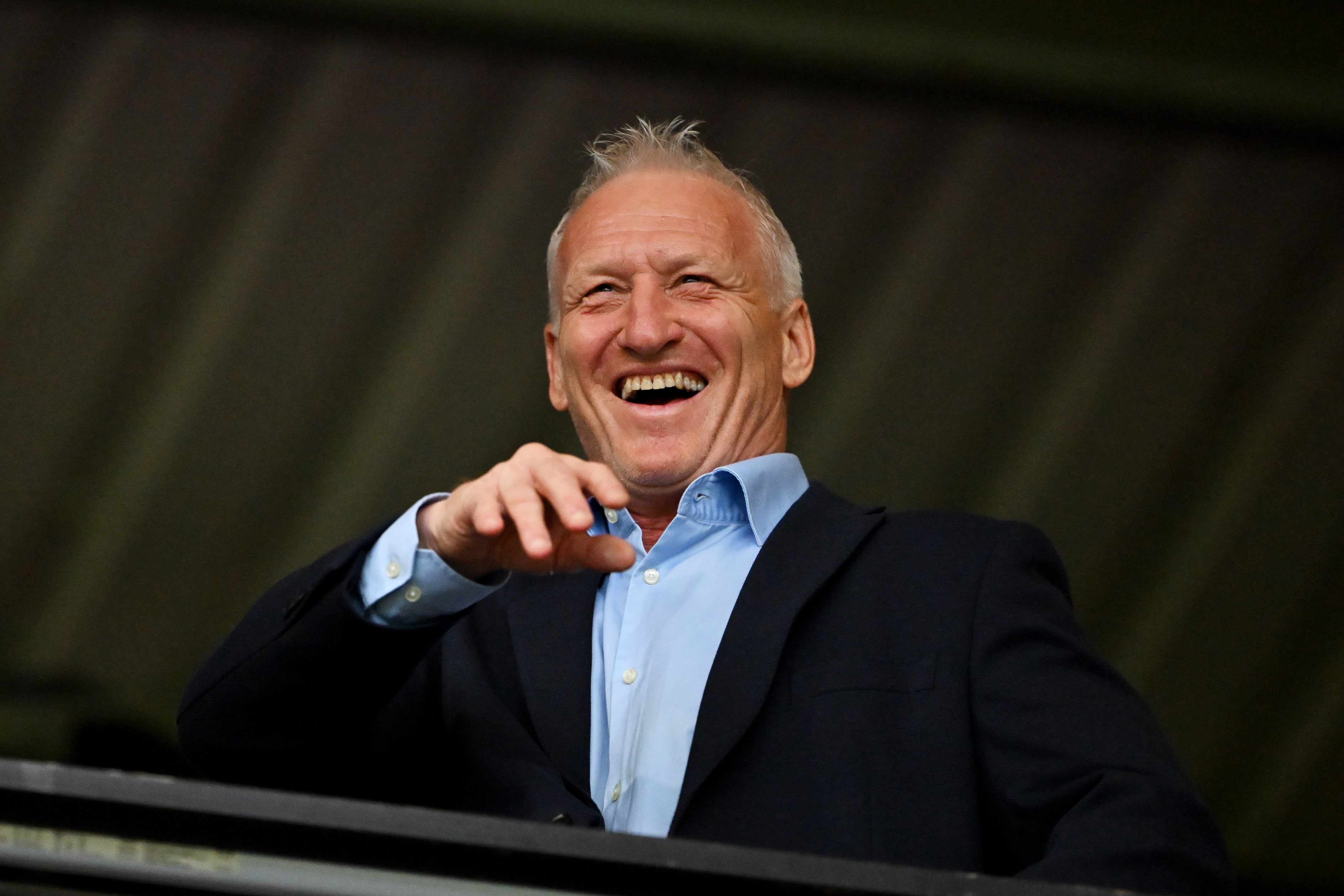
“I think a lot of those players are going to be way better off for that New Zealand experience – and that will help them support some of those who weren’t there. There are a hell of a lot of players who have been there and nearly done it…”
How motherhood changed Abbie Ward’s mentality as England seek World Cup glory
How England’s investment in women’s rugby helped turn Canada into a major World Cup threat
England’s semi-final star Ellie Kildunne: ‘My secret? I don’t like being tackled’
Who are the Red Roses? Player-by-player guide to England’s Rugby World Cup squad
Scotland and Australia’s parting words show the rocky landscape beyond the Women’s World Cup
Why are there so few female head coaches at the Women’s World Cup?



